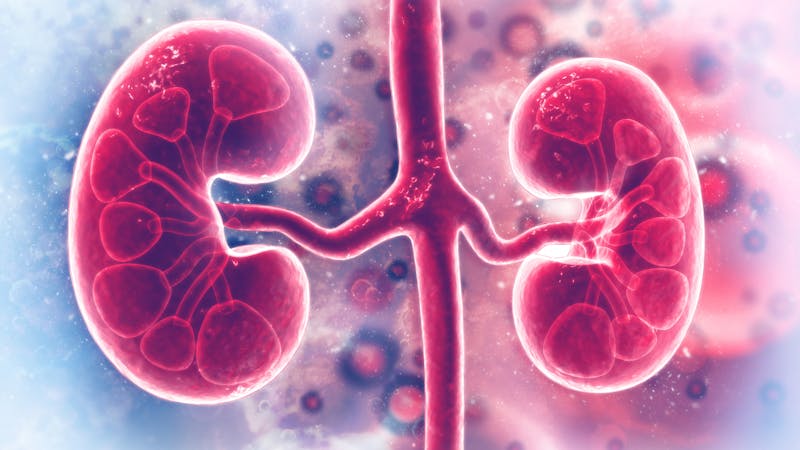Do low-carb diets harm kidney function?

At Diet Doctor, we recently published our evidence-based guide on low-carb diets and kidney health. Based on the available evidence, we concluded that moderate protein intakes commonly consumed on low-carb diets (1.2-1.7 grams per kg of reference body weight) did not pose a risk to kidney health. Imagine our surprise when two publications in Nephrology Dialysis and Transplantation claimed that protein and low-carb diets harm kidney function. How could we have gotten it wrong? Do we need to completely reverse our policy?
To make sure we provide the most trustworthy and up-to-date health information, we need to take a deeper look at these studies and place them into the context of existing research.
The first observational study followed 2,255 patients aged 60-80 with a history of myocardial infarction (heart attack). They filled out a standard food frequency questionnaire (which as we have reported before is frequently inaccurate and unreliable) and followed the GFR (a laboratory measurement of kidney function) after 41 months.
Observational trials like this provide weak data compromised by uncontrolled confounding variables. For instance, in this study those who ate more than 1.2 grams per kg of body weight per day (g/kg/d) of protein averaged 2,250 calories per day. Those who ate less than 0.8g/kg/d averaged 1,346 calories per day. That is an almost 1,000 calories per day difference!
But wait, there’s more. The higher-protein consumers also ate 268 grams of carbohydrates per day, compared to 173 grams per day for the lower-protein consumers. Finally, the high-protein group also ate 1,300 mg more sodium than the lower-protein group. While sodium may not be all that important on a low-carb diet, on a higher-carb diet, sodium intake likely does correlate with poor health outcomes.
Interestingly, the authors concluded that the higher-protein group had a more rapid decline in kidney function. But here’s the best part. We can also conclude that the group that ate more carbohydrates or sodium had the more rapid decline in kidney function. They just happened to all be the same group.
What was the true culprit? Protein? Carbs? Sodium? Or could it have been something completely different that wasn’t even measured? This study doesn’t help us with any of those questions. Any attempt to say with certainty that protein was the culprit is an unfortunate misrepresentation of the study.The second study was also observational, this time following 9,226 Koreans over 13 years. Again, the data came from food frequency questionnaires, and again the populations show completely different food intakes. Those who ate the lowest amount of protein averaged 0.6 g/kg/d of protein and 4.3 g/kg/d of carbohydrates. Those who ate more than 1.7 g/kg/d of protein also ate 7.3 g/kg/day of carbohydrates. That’s almost 60% more carbohydrates! Once again, the sodium also differed significantly, as did the frequency of smoking, alcohol consumption and fasting glucose, all of which were worse in the higher protein-group.
That doesn’t mean eating more protein causes you to smoke or drink. It means that those who smoke and drink happen to be more likely to eat more protein, carbohydrates and sodium.
What other poor health habits or other factors could have contributed to their worsening renal function? Again, this study does not tell us that.
At the risk of being repetitive, what truly caused the worsening kidney function? Was it the protein? The carbs? The alcohol? The smoking? Or other poor lifestyle choices?
We believe the quality of evidence matters when it comes to making decisions for our health. Whether it is red meat, protein or carbohydrate intake, the best way to identify a beneficial or harmful effect is with a randomized, controlled trial (RCT). Not a data-mining journey into an uncontrolled population dataset. Our guide to low-carb diets and kidney function cites meta-analyses of RCTs (the highest level of scientific evidence) and individual RCTs (moderate level of evidence) showing that protein intake does not harm kidney function.
The new evidence, based on old observational cohorts, is not sufficient to change our position on protein intake, low-carb diets and kidney health.
Please continue to check in with us to get trustworthy and evidence-based updates on the latest trials and scientific reports.
Thanks for reading,
Bret Scher, MD FACC
More
Guide: What you need to know about a low-carb diet and your kidneys